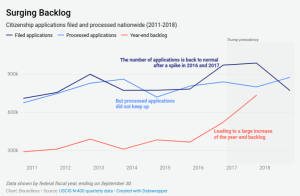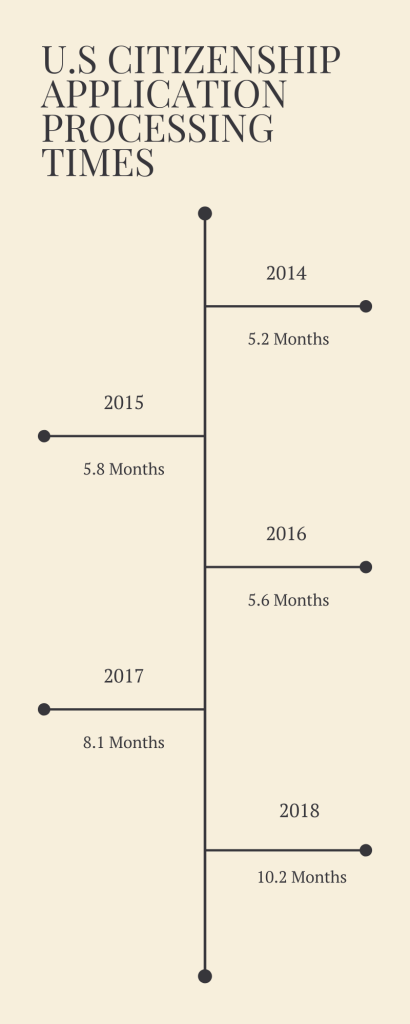“While going through the whole process of gaining citizenship, it was hard,” Nuresebah Alkadir said. Alkadir is a 21-year-old woman who gained her citizenship just two years ago in 2018. She had been in the United States for nine years before applying for citizenship.
“The whole process took about a year for us,” Alkadir said. “It was draining. You have to continue to meet and once you have your appointment, you have to study. My stepdad had to work extra hard.”
Naturalization Test
In order to gain citizenship, applicants must pass the United States Citizenship Test (also known as the Naturalization Test). Some of the questions on the test include questions about the Supreme court, the United States constitution and World War II.
Alkadir expresses the advantage of living in America for some time and learning English fluently. In addition, she expresses the concern with the fairness of the test seeing as though statistically most Americans wouldn’t pass it. According to a report done by the Woodrow Wilson National Fellowship Foundation, about 36 percent of Americans can pass a U.S Citizenship Test. This study was done through Lincoln Park Strategies, a research firm.
They sampled 1,000 American adults and only 36 of them passed. The president of Woodrow Wilson National Fellowship Foundation called this”‘an embarrassment.” 75 percent of the test takers who were 65 and older had better test results than the younger responders. Only 19 percent of the test takers who were under 45 passed.
If it is difficult for an American to pass a test based on their very own history, how will someone far removed from the United States geographically be expected to be knowledgeable about its history?
Citizenship Application
Applying for citizenship does not come without cost. This application is called the ‘Form N-400.’ The application for naturalization comes with two separate fees. The first fee is the actual application fee as well as a biometric service fee. The application fee is $640 while the service fee is $85. Altogether you would have a total of $725 just for the application alone. Just because you apply, however, does mean you will gain citizenship.
“So even though you went through the whole process, and if they reject you, that $725 is not refundable to you,” Alkadir said. Everyone who is applying for citizenship has different circumstances, but paying close to $800 without guaranteed citizenship is quite the gamble. “Not everyone just has $1,000 laying around to spend especially if they’re coming here to make themselves financially secure.”
Fee waivers for the N-400 form are available but there are some requirements that need to be met in order to be considered for the waiver. First, the form you are filling out must be eligible for a fee waiver and you must meet one of the following criteria:
- Your overall household income must be at or below the 150 percentile of the Federal Poverty Guidelines when you file
- You have financial hardship and can prove this with documentation (i.e medical bills)
- You, your spouse or someone files as head of household receives a means-tested benefit
Even though this fee waiver is available, a lot of people fail to obtain it and struggle to pay the standard $725 fee. A study done by Stanford University’s Immigration Policy Lab showed that the fee “prevents a ‘considerable share’ of low-income immigrants from applying for citizenship.” Alkadir understands how expensive it can be first hand as she did not qualify for the fee waiver.

Backlogged Applications
Since Trump has been in office, there has been an increase in backlogged citizenship applications. According to an article written by The New York Times, the amount of time it takes to become a U.S citizen has doubled in the past two years. On average, the application would take four to six months. Now, applications are taking up to a year to process.
In 2018, NPR reported that according to the most recent government data there are over 750,000 applications pending.



